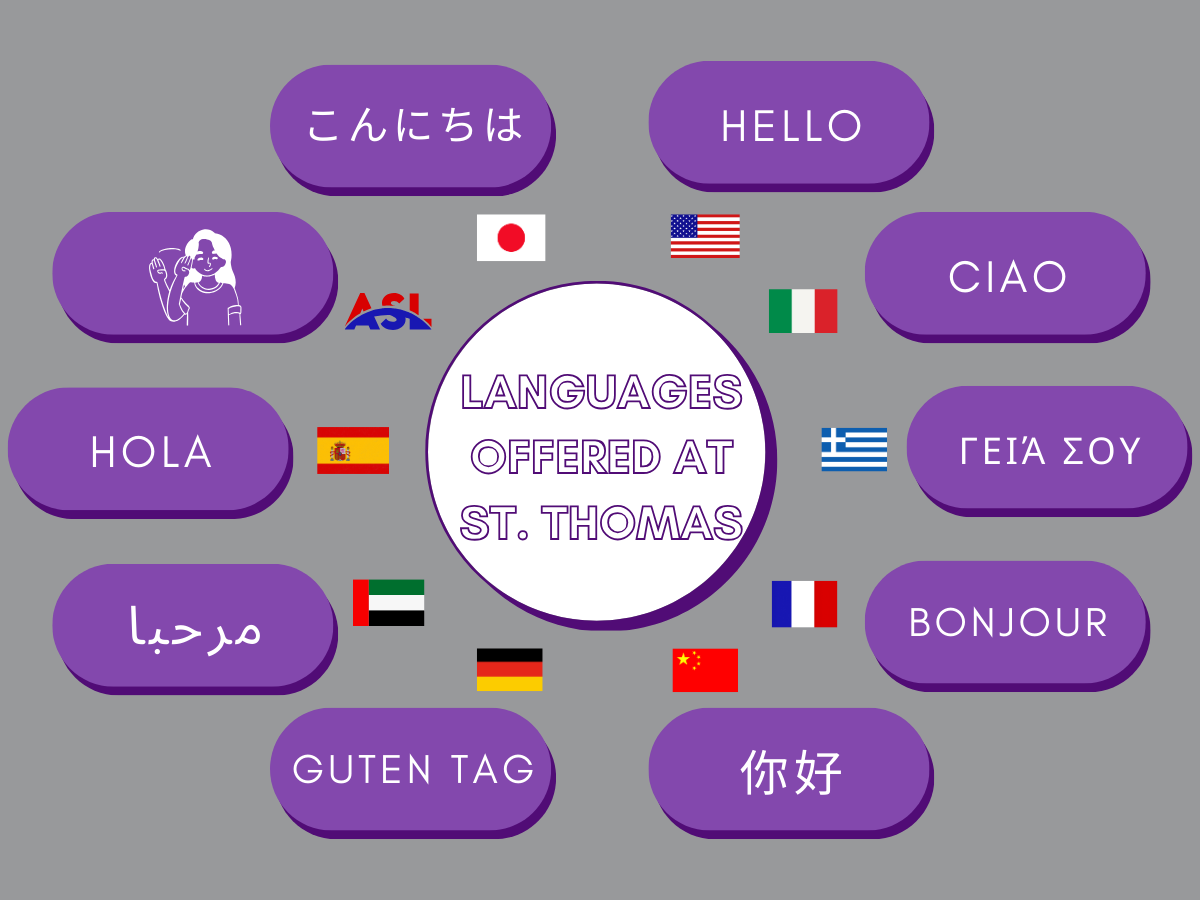
According to the U.S. Census Bureau, 78% of the population of the United States only speaks English. This statistic highlights the English-centered mindset when it comes to communication in America.
Juli Kroll, chair of the Department of Modern and Classical Languages said that learning second languages is essential to gaining global awareness.
“To develop global competency and intercultural skills … and to be able to communicate in diverse settings, we feel that it’s necessary to have proficiency and working knowledge of a second language,” Kroll said.
Not only can learning a second language be beneficial to academic life, but it is also beneficial to strengthening nervous system links. Within one week of studying a second language, there are positive impacts on one’s concentration. The long-lasting benefits include stronger communication skills, academic performance, and creativity, according to the University of Cambridge Journal.
Kroll said she found something musical and mathematic in unknown languages.
“Anything that was coded in a second language, presented a mystery to me that intrigued my brain and sparked my curiosity instantly. Inherently for me, sound has a musicality to it and a mathematical nature that then opened my world to communicating with people that didn’t speak English, my first language.” Kroll said.
Senior Parker Brynildson, vice president of the Spanish Club, wrote in an email to TommieMedia that the ability to speak multiple languages aids in a global understanding of the world.
“I just enjoyed being able to learn about other cultures and worldviews that differ from my own and what we experience here in the United States,” Brynildson wrote.
There are dangers to the English-centered culture in America, according to Kroll.
“Were we to have an English-only approach … we will lose out on diversity and allowing people to have equal access to self-expression, which is a right, and under the law, everyone has the right to be able to express themselves in their first language for accuracy,” Kroll said.
To those who may be intimidated by learning a second language, Kroll stressed the importance of finding cultural features, such as art, music, film or food from a language of interest.
“Maybe you appreciate anime, and you’re going to be learning Japanese. Start watching some of those films if you’re not doing so already.” Kroll said.
Using culture to aid in learning a second language allows for a deeper understanding of a language’s culture and accelerates the learning process, Kroll said.
Another way to assist in the learning process is by joining one of the many clubs St. Thomas offers. St. Thomas currently has clubs for Spanish, German and French.
Sophomore Molly Bradley, the co-president of the German Club, wrote in an email to TommieMedia that joining the club has transformed “learning German into a recreational activity as opposed to a responsibility of the school.”
“Learning foreign languages has definitely taught me lessons in humility and perseverance. Though it can be embarrassing and be a pain, the outcome of connecting with another person in another tongue is so rewarding,” Bradley wrote.
Kevin Callahan can be reached at call2656@stthomas.edu.


